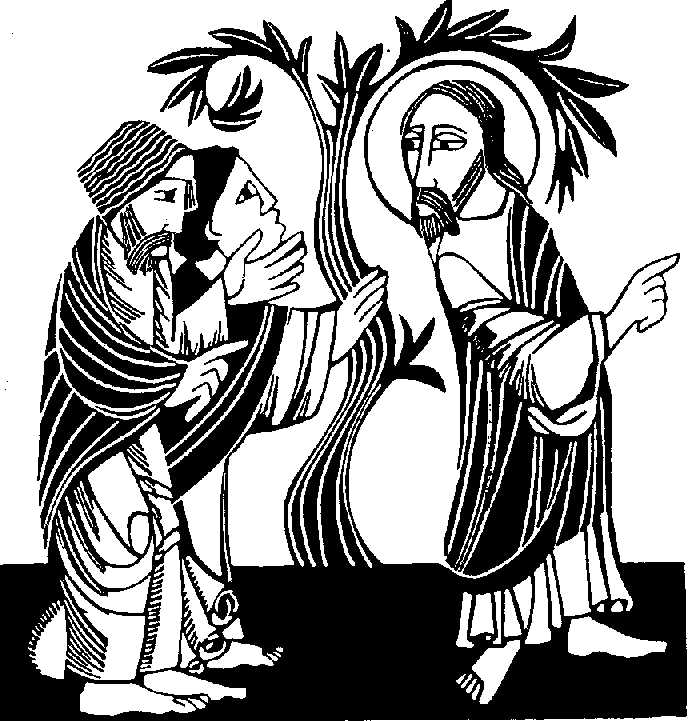
The “Mystic marriage of Christ and the Church…”
As noted in The Christian repertoire, “The terms ‘mystic‘ or ‘mysticism‘ seem to throw Southern Baptists and other conservative Christians into apoplexy. (‘Try it sometime!!!‘)”
One example? “The term ‘Christian mystic’ is an oxymoron. Mysticism is not the experience of a Christian.” See What is Christian mysticism? – GotQuestions.org. Or consider this:
Mysticism is when you get into a mystical state and it’s something you cannot understand, you’re out there in “la-la” land, it’s an “oooh” experience and you’re really not thinking.
Is There A Biblical Mysticism? | thebereancall.org. (About one “click” down).
On the other hand – and as also noted in Christian repertoire – a generalized internet search leads to the definition of a mystic as “a person who seeks by contemplation and self-surrender to obtain unity with or absorption into the Deity or the absolute…”
That seems to be what Christianity is all about: obtaining unity with God, through Christ.
See also Mysticism – Wikipedia, the free encyclopedia, which said the term mysticism originally “referred to the biblical, the liturgical and the spiritual or contemplative dimensions in early and medieval Christianity.” The article Teresa of Ávila – Wikipedia, the free encyclopedia, noted in pertinent part, “Teresa’s writings, produced for didactic purposes, stand among the most remarkable in the mystical literature of the Catholic Church.”
And finally, there’s the note in “Mr. Chan?” That note points out page 339 of the Book of Common Prayer, “which says that by sharing Holy Communion we are assured ‘that we are very members incorporate in the mystical body of thy Son…'” Emphasis added.
Of course there might be a dark side of the force, a “moral, philosophical, metaphorical and psychic concept.” See for another example, The Bible and Mysticism – Patheos:
Not all mystical experiences lead to good. It seems clear that many Germans at the Nurnberg rallies in the late 1930s entered a state of mystical ecstasy as they listened to Hitler in the midst of flags and goose-steeping troops and stirring music… The test, the criterion of discernment, as William James wrote more than a century ago, quoting a saying of Jesus from Matthew, is, “By their fruits, you shall know them.” If the result, the consequence of mystical experience, is compassion and growth in compassion, then it is of God, from the sacred.
Which sounds like a pretty good test.
For those conservatives and/or literalists who still want to go old school, there’s a book, Jewish Meditation: A Practical Guide, available at Amazon.com, by Aryeh Kaplan:
This practical guide covers such topics as mantra meditation, contemplation, and visualization within a Jewish context. It shows us how to use meditative techniques to enhance prayer… Through simple exercises and clear explanations of theory, Rabbi Kaplan gives us the tools to develop our spiritual potential… (E.A.)
See also Judaism 101: Kabbalah and Jewish Mysticism. (You might want to check Kabbalah: An Overview | Jewish Virtual Library: “Kabbalah is the name applied to the whole range of Jewish mystical activity. While codes of Jewish law focus on what it is God wants from man, kabbalah tries to penetrate deeper, to God’s essence itself.”)
Judaism 101 did note this “trendy doctrine” had been popularized “by various Jewish and non-Jewish celebrities.” (See Madonna Kabbalah.) Then too, “several messages from non-Jews describ[e] Kabbalah as ‘the dark side of Judaism,’ describing it as evil or black magic.”
Heck, you might even say that beginning a spiritual and/or Mystic Quest in an effort to help your favorite college football team win national championships could be seen as part of that “dark side.” But then there’s that darn passage about Moses, at the Battle or Rephidim, having his buddies hold his arms up, to help his team win. (It seems that if he got tired and let his arms down, the other team started winning. See Intro, and also “God’s Favorite Team”.)
Be that as it may, Judaism 101: Kabbalah and Jewish Mysticism also said: “Mysticism and mystical experiences have been a part of Judaism since the earliest days.”
Talk about “originalism…”

The upper image is courtesy of Christian mysticism – Wikipedia, the free encyclopedia. The full caption: “Mystic marriage of Christ and the Church.”
The lower image is courtesy of the same site, with the caption: “Transfiguration of Jesus depicting him with Elijah, Moses and 3 apostles by Carracci, 1594.” The site noted: “[P]ractices such as the Eucharist, baptism and the Lord’s Prayer all become activities that take on importance for both their ritual and symbolic values.” Further, “Jesus’ conception, in which the Holy Spirit overshadows Mary, and his Transfiguration, in which he is briefly revealed in his heavenly glory, also become important images for meditation.”
Re: “The dark side of the force.” The full reference is Dark side (Star Wars) – Wikipedia, the free encyclopedia: “The dark side of the Force is a fictional moral, philosophical, metaphorical and psychic concept in the Star Wars universe created by George Lucas. The Force is a mystical energy which permeates the Star Wars galaxy; its dark side represents an aspect of it that is not practiced by the Jedi who view it as evil.”
Re: old school. See for example Urban Dictionary: old school, and Define Old school at Dictionary.com: “advocates or supporters of established custom or of conservatism.”
Re: Madonna Kabbalah – Huffington Post. That site included a number of related stories from the “Post,” including Decade Roundup: 7 Signs We Are Becoming More Spiritually Focused, which added: “Celebrities such as Madonna, (now known by her Kaballistic name, Esther), David Beckham, Elizabeth Taylor, Demi Moore and Britney Spears have all embraced the Kabbalah.”
The column On “originalism” noted the term reflects “the view that interpretation of a written constitution or law [ – or Bible – ] should be based on what reasonable persons living at the time of its adoption would have declared the ordinary meaning of the text to be.”















